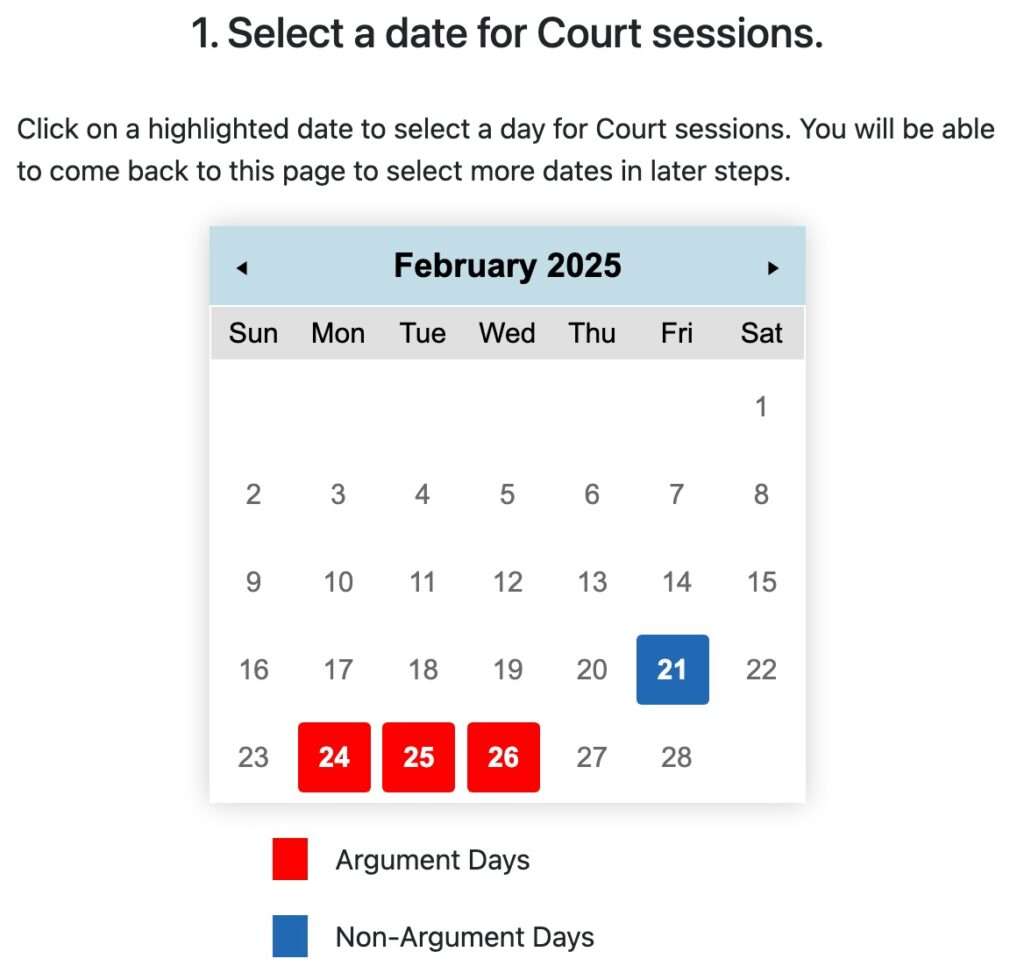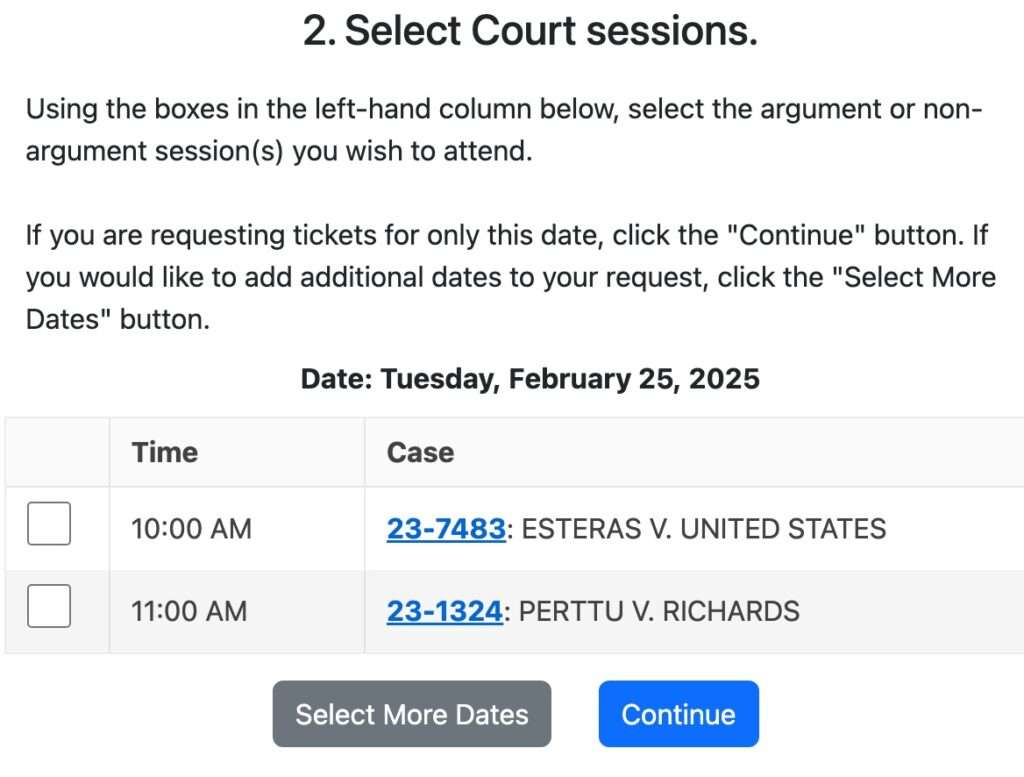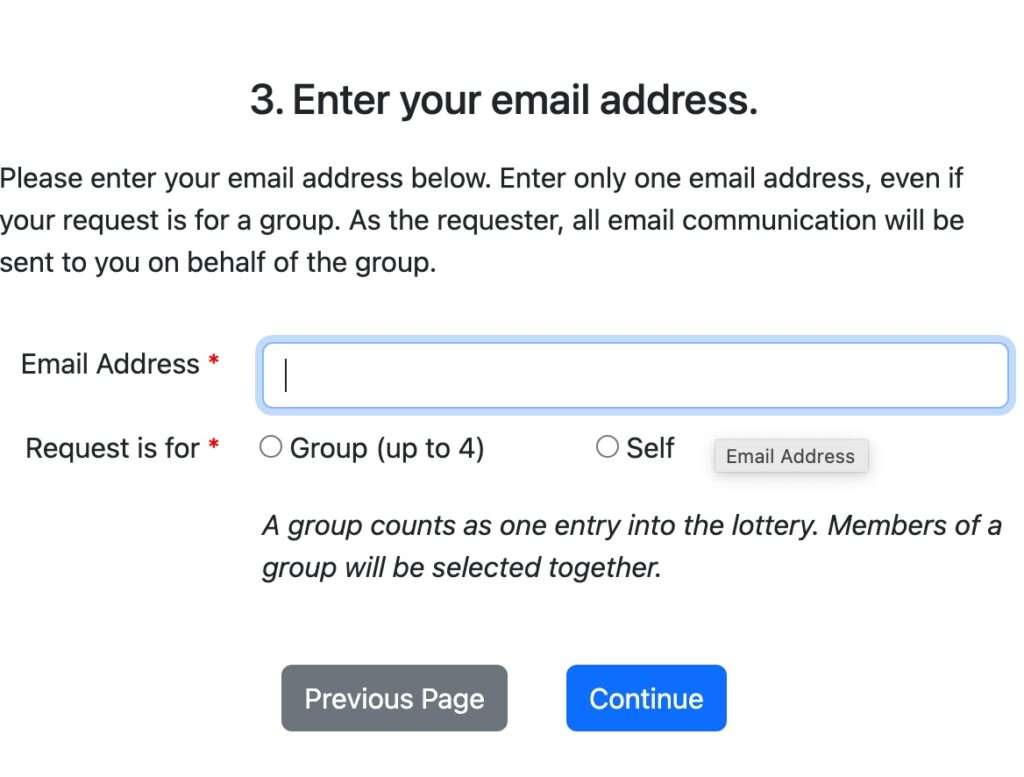For more than a decade, I have been complaining about how the Court distributes tickets. There are paid line waiters, line cutters, and general chaos when there are disagreements. In November 2019, I offered a series of recommendations of how the process could be improved. One of my ideas was to adopt a lottery:
Attorneys should be able to enter a lottery to obtain a ticket for a specific argument date. There should be a random drawing. Depending on demand, attorneys could request one argument per year, or one argument per sitting. Ideally, the requests should be made after the calendar for a given sitting has been announced. (It does not make sense to reserve a session before you know what case will be argued.) The requests should be made online through a system that verifies an attorney is in good standing. Confirmation can be sent by email.
Attorneys who lose the lottery, or do not make a timely request, can still show up the same day and wait on the bar line. They would be able to listen to the arguments from the lawyer's lounge. In the event that a lottery winner does not show up, one of the attorneys from the lounge can be upgraded to the chamber.
This process would eliminate most of the unfairness of waiting outside, including line-cutting. The lottery would also ensure that people do not travel at great expense for an argument they cannot attend in person.
If the lottery process is successful for members of the bar, it should be extended to the general public. It will be more difficult to implement a lottery for members of the general public, who are not vetted. But the process would be feasible. Adding a degree of randomness would ensure that people do not have to wait in the cold and rain for days outside the Court. Moreover, a lottery would ensure that a range of people from different backgrounds with different interests can attend--not just those who have the means to camp out for days on First Street.
In May 2020, Amy Howe promoted my idea at SCOTUSBlog:
The court has traditionally been reluctant to get involved in policing the public line: Officers normally don't do much beyond handing out tickets at around 7:30 a.m. But other small steps by the officers could help to increase the perception of fairness – for example, handing out tickets or wristbands much earlier in the process (a step that many lawyers in the bar line might also welcome) to ensure that later arrivals don't join the line and take a spot that should belong to someone who has spent many hours waiting. Blackman has recommended a much more dramatic step: Scrap the line system altogether in favor of a lottery. Such a system would not only address some of the social-distancing issues that the court is likely to face for many months to come, but (even if it included only some of the public seats) it would also give some members of the public more certainty – especially if they plan to travel to the court from out of town – that they will actually get a seat.
Today, the Court announced a new lottery pilot program:
The Supreme Court is implementing a pilot program in which members of the public may apply for Courtroom seating through a fully automated online lottery. Individuals who receive tickets through the lottery will be able to come to the Court knowing that they have reserved seating for a particular argument or non-argument session.
The pilot program will begin with the February 2025 argument session. Starting today, members of the public can access the lottery for the February 2025 session through a link on the Court's website. The deadline to submit an application to the lottery is 5 p.m. Eastern time, four weeks before the particular argument or non-argument session. Three weeks before the session, the Court will notify applicants by email as to whether they have received tickets, have not received tickets, or are on a wait list. Applications for future lotteries will open shortly after a particular monthly argument calendar is released.
During the pilot program, the Court will continue to provide some seating for the public on a first-come, first-seated basis. Before a session begins, a line will form on the sidewalk on East Capitol Street adjacent to the Court building. Seating for the Bar section will remain on a first-come, first-seated basis during the pilot.
Additional information about the online ticketing system is available via the "Courtroom Seating" quick link on the Court's website: https://www.supremecourt.gov.
Bravo! What an elegant, and needed solution to the chaos on the Supreme Court line.
The Courtroom Seating section offers some more information on the FAQ. The ticket is only for a single case. You cannot attend both arguments. This is a very smart move, and ensures that tickets are only allocated for a particular case. More seats will now be open. You can request up to four tickets. There is also a wait list, which seems extremely useful if a guest has to cancel. Notifications for the wait list are provided up to three days in advance. That would be most useful to people who are local in DC, but not those who have to make travel arrangements. Also, the lottery system applies to non-argument sessions, such as opinion hand-downs. I'm not sure how it will work in June when hand-down dates are added with a few days notice. Lotteries may not be available for those dates. For now, at least, members of the bar still have to wait on line.
The system is very easy to use and elegant.
First, you select a date of a session:

Second, you can select one or more cases to enter the lottery for:

Third, enter your contact information, to select up to four tickets per argument.

Again, bravo to the Court. They got this one exactly right. And it should be expanded. As someone who arrived to the Bar Line around 5 AM for an argument this term, I think the lottery should be extended to bar members. For big cases, the parties often gobble together many tickets for their colleagues, leaving other lawyers stuck in the lounge. A bit of randomness would be useful here.
The post In 2019, I Proposed that SCOTUS Should Use a Lottery To Distribute Tickets. In 2024, SCOTUS Proposes Pilot Lottery Program. appeared first on Reason.com.







